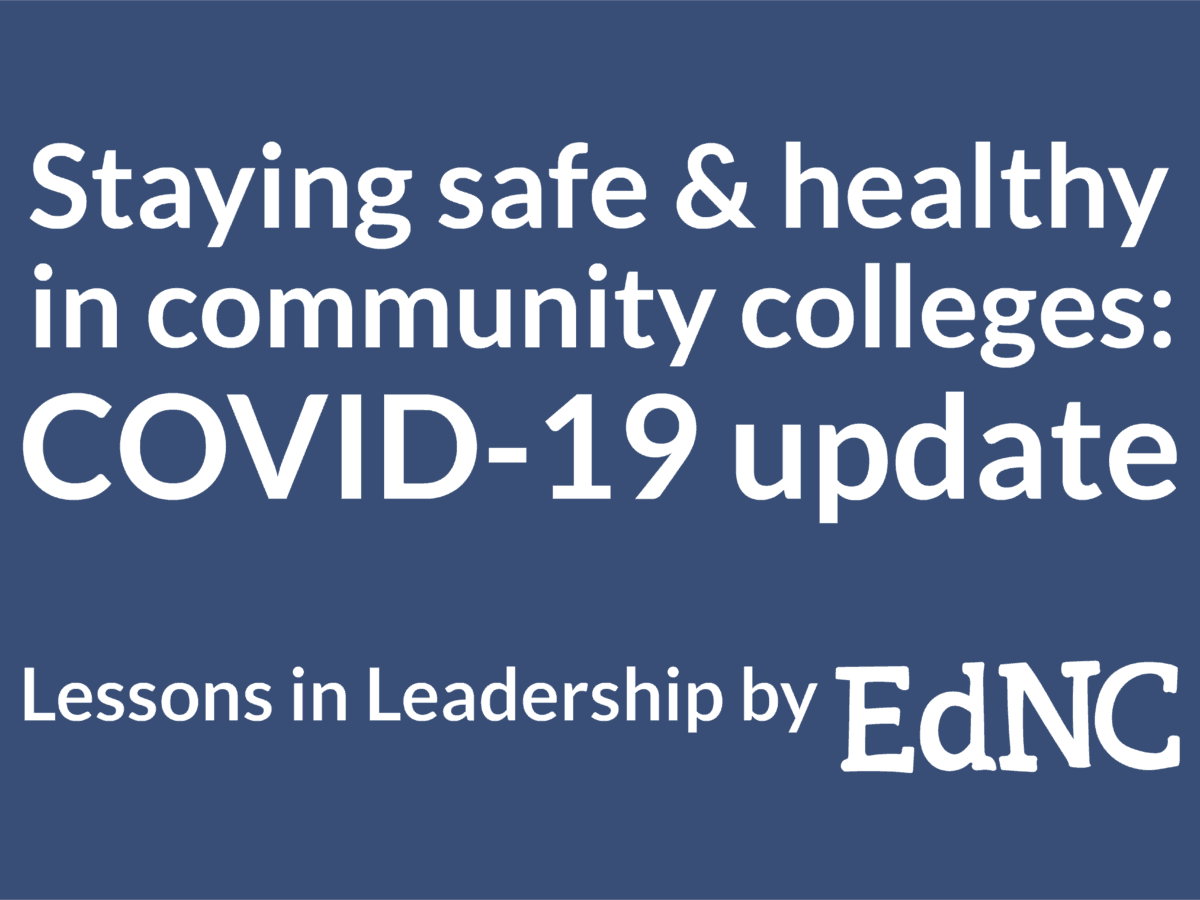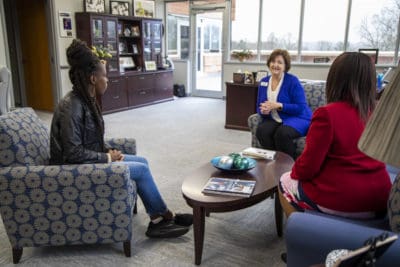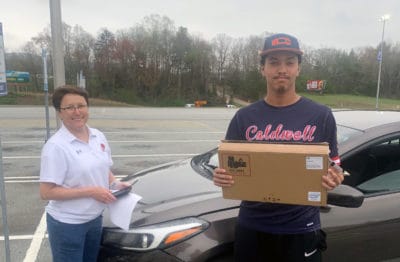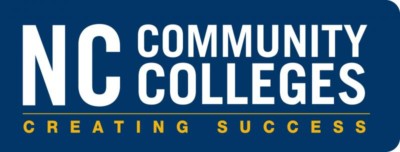

Since Peter Hans, president of the NC Community College System, instructed colleges to move from face-to-face instruction to remote education due to the spread of COVID-19, colleges have sprung into action. The state’s 58 community colleges are confronting a range of concerns — from the institutional to the technological to the very personal — as they make the transition online.
In recent weeks, I had the chance to catch up with presidents and administrators across the state to hear both their concerns and the solutions they have begun to implement.
Community colleges have expanded online course offerings in recent years — including hybrid courses featuring a combination of face-to-face instruction and online course delivery. But for many of the colleges, quickly moving their entire course catalog online was still a significant challenge for faculty and administrators alike.
Darrin Hartness, president of Davidson County Community College, spoke to the myriad challenges students are facing as a result of the pandemic.
“Online learners need to not only have access, they also need to be organized and disciplined in scheduling their assignments,” Hartness said. “I am concerned that some will get frustrated and want to give up or consider withdrawing. We know that our students may also be dealing with family responsibilities, health concerns, and financial worries. To help address these concerns, we have set up student support hotlines, a digital form for students to submit questions or concerns, and a student support page on our website.”
Colleges have instituted a variety of support mechanisms to meet the concerns Hartness and others have raised.
Vance-Granville Community College launched an online tool that connects students with questions to advisors with answers. Wilkes Community College has expanded tutoring availability via Skype or Microsoft Teams and launched communication efforts to let students know about those opportunities.
Maria Pharr, president of South Piedmont Community College, told us the college is working with students in a variety of ways to help them be successful, instituting tuition forwarding based on new state guidelines, and ramping up focused advising related to online issues for students who have had to transition to online courses. The college is also trying to keep students with technology hardships from withdrawing by encouraging them to collaborate with their instructors to explore additional resources including virtual academic support, advising, and counseling.
Some courses offered by community colleges will struggle to shift online. Mark Poarch, president of Caldwell Community College and Technical Institute, said, “One of my biggest concerns is with classes that can’t be converted to an online format such as those with technical components, labs, and clinicals. We have over 100 curriculum courses that couldn’t be converted to 100% online. We also have numerous workforce programs, such as truck driver training and electrical lineman, that aren’t appropriate for an online environment. The longer we are unable to run face-to-face classes, the more challenging completing these classes will become.”
Mark Sorrells, senior vice president for academic and student services at Fayetteville Technical Community College, shared: “We are making arrangements in a minor number of courses that require more powerful computers to run software to come to on-campus labs to complete assignments under the supervision of the instructor. In those instances, we are only allowing small numbers, 10 or less, in a lab at one time, with social distancing practices at all times. These labs are sanitized after each use, and students are provided access to hand sanitation.”
At Stanly Community College, instructors are trying to shift as much instruction online as possible, President John Enamait said. An automotive collision repair instructor is recording himself taking apart a car and putting it back together and posting the video online, “but there comes a point in time where students are going to have to lay their hands on whatever it is that they need to work on,” Enamait said.
Beyond technical challenges, almost every administrator I’ve spoken with has noted the multitude of real-world challenges COVID-19 will bring to their students and their lives.
Dale McInnis, president of Richmond Community College, put it concisely: “My biggest concerns are that our students will become so overwhelmed by the life changes caused by the response to the virus, ranging from loss of employment to their children being out of school, that they will lose their focus on completing our classes. We are working hard in a wide variety of different ways to keep their attention on finishing these classes. My second significant concern is for the students we are transitioning from face-to-face to online, given that many of them chose the traditional face-to-face instructional format due to their comfort level or lack of internet access.”
Colleges are tapping their foundations, Finish Line grant funds, and other resources to try to address immediate concerns.
But despite the challenges, the colleges are quick to point to their success in shifting instruction online for their student bodies.
Davidson County Community College, for example, notes that 73% of its spring 2020 classes were being delivered online as of Monday, March 23. Before the COVID-19 pandemic, only 30% of its courses were accessible completely online.
David Shockley, president of Surry Community College, noted the complexity of the challenges: “As an administrator, it feels like the weight of the world is on you as you attempt to make the right decision. You have to consider your righteous desire to help promote the essential need for education, which is critical in our lives, with the safety of life itself. My goodness, these decisions are gut wrenching!”
But Shockley closed with optimism.
“Every crisis or challenge in this life provides us with two basic choices — shrink away or rise to the occasion,” he said. “When we rise to the occasion, we grow and become better individuals. Organizations are no different. At Surry Community College, we are determined to rise to the challenge and use this to address any inefficiencies within our distance learning programs.
“Think of the power of an entire campus pulling together to offer quality online courses for our students. The unity and creativity is remarkable.”




